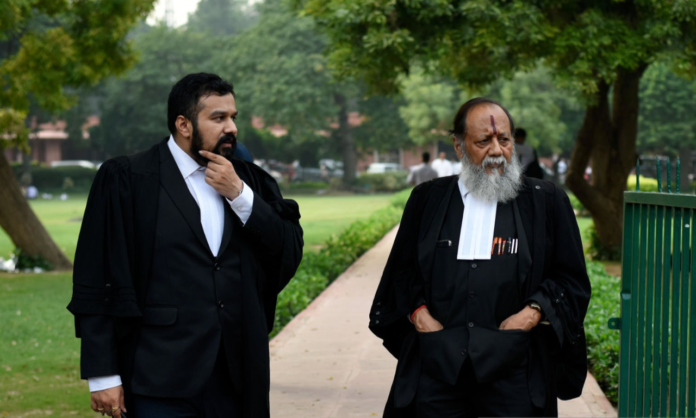Following the Supreme Court’s decision to review the Places of Worship (Special Provisions) Act, 1991, Advocate Hari Shankar Jain has vowed to reclaim Hindu temples allegedly demolished to construct mosques.
“It is not a relief for anyone. If anything, it is a relief for Hindus that the court has decided to check the validity of the Places of Worship Act,” said Advocate Jain. He added:
“I have already filed the Taj Mahal and Qutub Minar cases in the court. I have pledged to reclaim all the Hindu temples which have been broken to build mosques. The fight is not against mosques but against structures built on temples, and they cannot be called mosques.”
Supreme Court’s Directives
The Supreme Court on Thursday restrained all courts across the country from passing effective interim or final orders, including surveys, in pending suits concerning existing religious structures.
A bench comprising Chief Justice of India Sanjiv Khanna and Justices PV Sanjay Kumar and KV Viswanathan stated:
“As the matter is sub-judice before this court, we deem it fit to direct that while suits may be filed, no suits would be registered, and proceedings undertaken till further orders of this court. In the pending suits, courts would not pass any effective interim order or final orders, including orders of survey.”
The court also granted the Central Government four weeks to submit an affidavit in response to the petitions challenging the validity of the 1991 Act.
Legal Challenges to the Act
The Places of Worship (Special Provisions) Act, 1991 prohibits filing lawsuits to reclaim religious sites or alter their character from what existed on August 15, 1947. The Act aims to maintain communal harmony by preserving the status quo of religious structures as of that date.
However, the Act is being challenged on the grounds that it allegedly infringes on the rights of Hindus, Jains, Buddhists, and Sikhs to restore their religious sites desecrated or destroyed during historical invasions.
Prominent individuals such as Maharaja Kumari Krishna Priya (of the Kashi Royal Family), Subramanian Swamy (BJP leader), Swami Jeetendranand Saraswati, and others have filed petitions against the Act.
Background
Currently, 18 suits against 10 religious structures are pending across the country. Notable cases include disputes over the Taj Mahal and Qutub Minar, wherein claims have been made about their original status as Hindu temples.
The legal battle has reignited debates about historical grievances and their implications for present-day religious harmony.
The Supreme Court’s ongoing review of the Act is seen as a pivotal moment in determining the balance between historical claims and contemporary communal peace.


